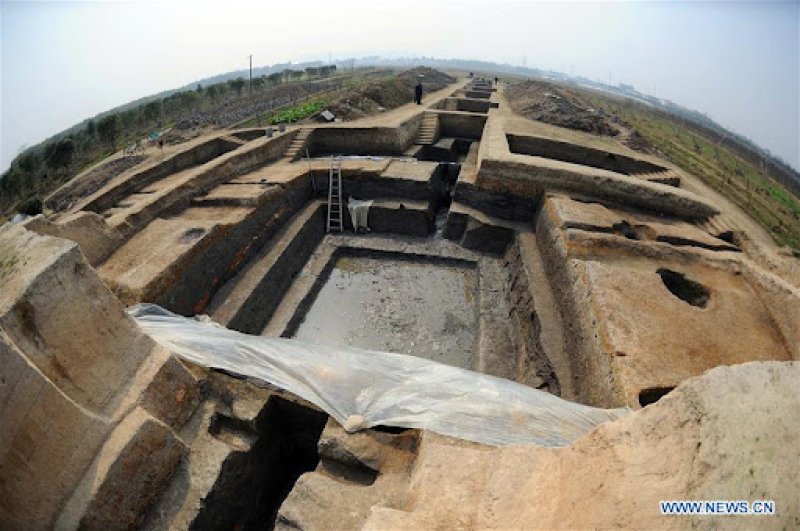Some 4,000 years ago, a sophisticated society that built a city of canals known as “China’s Venice of the Stone Age” abruptly vanished. Historians have long debated whether war, disease or famine caused the Liangzhu culture’s collapse. Now, they’ve pinpointed a key culprit in the civilization’s fall: climate change.
According to Ellen Phiddian of Cosmos magazine, researchers determined that an unusually heavy series of wet monsoons flooded Liangzhu City, forcing residents to abandon their homes. Writing in in the journal Science Advances, the team details how an overactive El Niño cycle likely resulted in massive flooding and the collapse of the community’s intricate infrastructure.
“The massive monsoon rains probably led to such severe flooding of the Yangtze [River] and its branches that even the sophisticated dams and canals could no longer withstand these masses of water, destroying Liangzhu City and forcing people to flee,” says study co-author Christoph Spötl.
The study notes that wet conditions lasted for several hundred years following the abandonment of Liangzhu, eventually paving the way for the rise of the Xia dynasty in 2070 B.C.E. Its reputed founder, Yu the Great, introduced more extensive flood-control methods and is known as the “Tamer of the Flood.”































